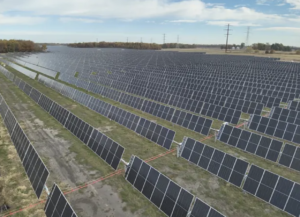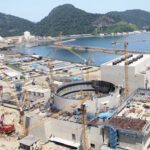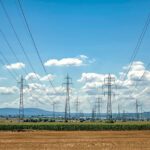A pervasive drought in northeast Brazil has dried up power supplies from the region’s hydropower facilities, making the area prone to blackouts and crippling economic growth in one of the country’s emerging agricultural havens.
In January the country, which sources 67% of all power from hydro, saw what some media outlets described as the worst drought in 50 years. As dams in the northeast fell to 32% of capacity—below the 34% limit national grid operator ONS deems sufficient to guarantee power supplies—lower rain levels also resulted in substantial cost increases for power generators and prompted electricity price spikes.
Brazil is not unfamiliar with power shortages. On June 1, 2001, the government of then-president Fernando Henrique Cardoso ordered a 20% electricity consumption cut to avoid an uncontrolled collapse of the national grid from a shortage of electricity as an unusually long drought gripped the country and depleted water volumes (see “Brazil: Latin America’s Beacon,” in POWER’s January 2010 issue). Rationing was finally lifted at the end of February 2002, but the power crisis left a legacy that prompted the drought-prone country to reform its power sector and reduce its reliance on hydro sources. Today, the country’s reliance on hydropower is much reduced from 84% in 2008, as it has shifted to renewables, thermal, and nuclear generation.
The recent drought has, however, prompted expert speculation that the country’s generators may be unable to provide sufficient power over the short term, and particularly during the FIFA World Cup next year. These fears were recently fanned by power regulator Aneel, which has claimed Brazil will face continued blackout risks due to unfinished infrastructure projects. The Mining and Energy Ministry has vehemently denied those allegations, saying it can “affirm with absolute certainty” that there would be no risk to power supply during the international soccer tournament, even though it admitted that more than half of the 163 distribution and transmission projects needed to guarantee energy supply are behind schedule.
If Brazil is to face another energy crisis, it will likely be due to “poor planning and lack of investment, particularly in transmission and distribution systems,” says Adriano Pires, a managing partner at Brazilian infrastructure center CBIE and a specialist in infrastructure and energy. Regulatory changes to control pricing could also be to blame, a February report from BN Americas notes, saying that Brazilian energy companies saw a combined $15.6 billion loss as a result of a recent regulation change between September and December 2012.
—Sonal Patel is POWER’s senior writer (@POWERmagazine, @sonalcpatel).










